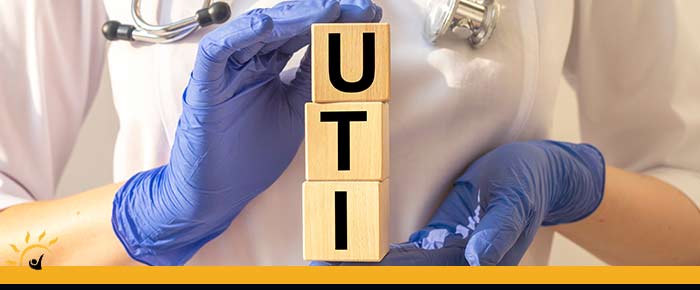Urinary Tract Infections (UTI) Treatment in Ellington, CT
If you have a UTI and are experiencing the symptoms that come with it, come to Priority Urgent Care to get treatment. Our professional staff can help determine the cause of your UTI and provide treatment that is specific to you. Request an appointment online or contact our clinic today. We are conveniently located at 105 West Road Ellington, CT 06029.




Table of Contents:
How long does a UTI last?
What causes a UTI?
Should I see a doctor for a UTI?
UTIs, or urinary tract infections, are an infection occurring in the urethra and urinary tracts. They are most commonly caused by bacteria, although they can be caused by other sources. UTIs are often treated with antibiotics, which usually clear up the infection within a week. Thankfully, there are many treatments for UTIs, whether they are caused by bacteria or not.
The most commonly used treatment for urinary tract infections are antibiotics. The length of time of treatment with antibiotics for UTIs varies depending on the part of the urinary tract that is infected.
• People with a bladder infection (cystitis) will need to take antibiotics for 3 to 7 days.
• People with a kidney infection will need to take antibiotics for up to 2 weeks. In rare and serious cases, one may also require hospitalization and intravenous antibiotics.
Although UTI symptoms usually begin to improve shortly after starting antibiotic medications, it is important to take the full course of antibiotics prescribed by your healthcare professional to ensure that the infection is fully cleared and does not return.
There is more than one treatment regimen for a UTI for most antibiotics. Make sure to discuss the right treatment frequency and dosage with your health care provider.
The majority of urinary tract infections are caused by bacteria that enter the urethra and then the bladder. The infection most commonly develops in the bladder, but in rare cases can spread to the kidneys. Your body can get rid of these bacteria on its own most of the time. However, certain conditions increase the risk of having UTIs such as diabetes or a suppressed immune system.
Women tend to get UTIs more frequently because their urethra is shorter and closer to the anus. For these reasons, women are more likely to get an infection when using a diaphragm for birth control or after sexual activity. Menopause also increases the risk of a UTI.
The following conditions also increase your chances of developing a urinary tract infection:
• Diabetes
• Advanced age and conditions that affect personal care habits, like delirium and Alzheimer’s disease
• Problems emptying the bladder completely
• Having a urinary catheter
• Bowel incontinence
• Narrowed urethra, enlarged prostate or anything that blocks the flow of urine
• Kidney stones
• Staying immobile for an extended period of time
• Pregnancy
• Surgery or other procedure involving the urinary tract
We often take the satisfaction of relieving ourselves for granted—until we get a urinary tract infection (UTI) that burns with a fierce pain. When you find yourself sitting on the toilet wincing in pain, you know you have to deal with this problem. Most often, it is necessary to visit the doctor to deal with a UTI, and thankfully, they have much experience in treating them.
Visiting a doctor for a urine culture is the best way to figure out which bacteria is causing your UTI, and consequently which antibiotic will be most effective for treatment. UTIs can be caused by many different types of bacteria, and not every type antibiotic can effectively treat every kind. You want to make sure you find the source of the UTI before starting treatment to avoid any unnecessary rounds of antibiotics.
If you or someone you know has a UTI, come to Priority Care! Our team of professional staff can help you find the relief you need! To talk with an expert, contact our office today. Visit us online or give us a call to schedule an appointment at our clinic.

Additional Services You May Need
▸ Urgent Care
▸ DOT Physicals
▸ Worker’s Injury Treatment
▸ Drug Testing
▸ Physical Exams
▸ School/Sports Physicals
▸ Sports Injury Treatment
▸ X-Ray Services
▸ Pediatric Urgent Care
▸ Poison Ivy
▸ STD Testing
▸ Immunizations & Vaccinations
▸ Lab Testing
▸ Pre-Employment Physical
▸ Employer Services


